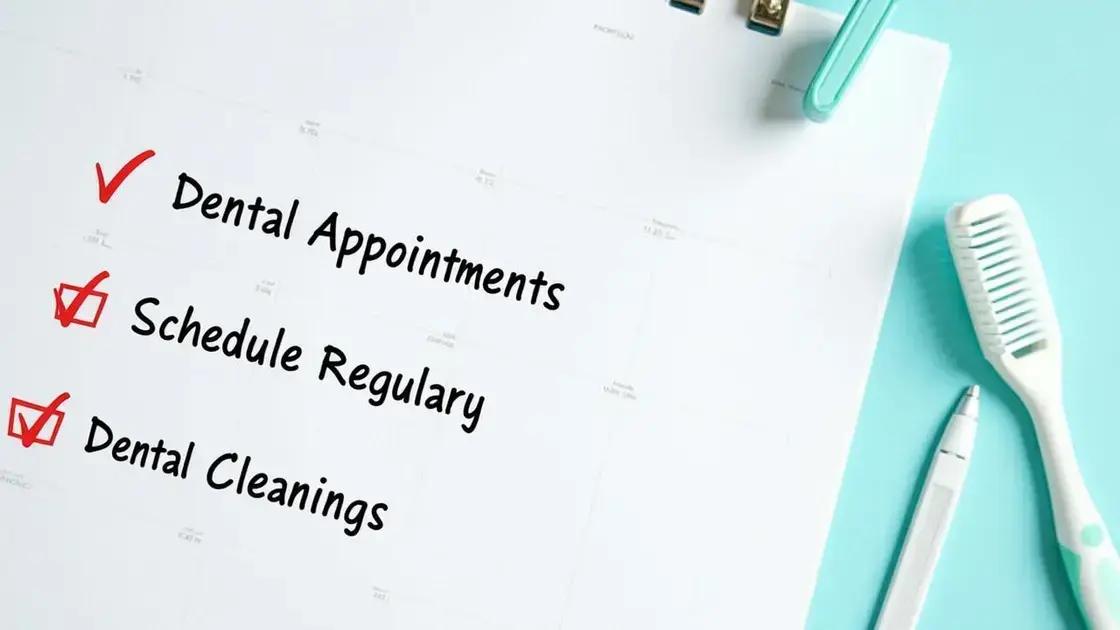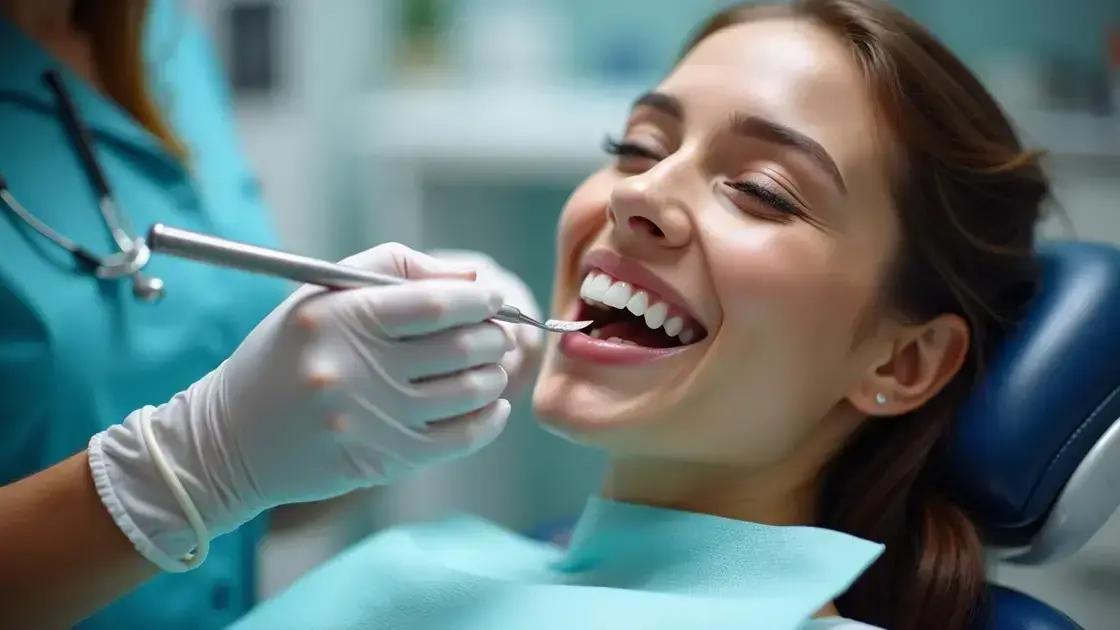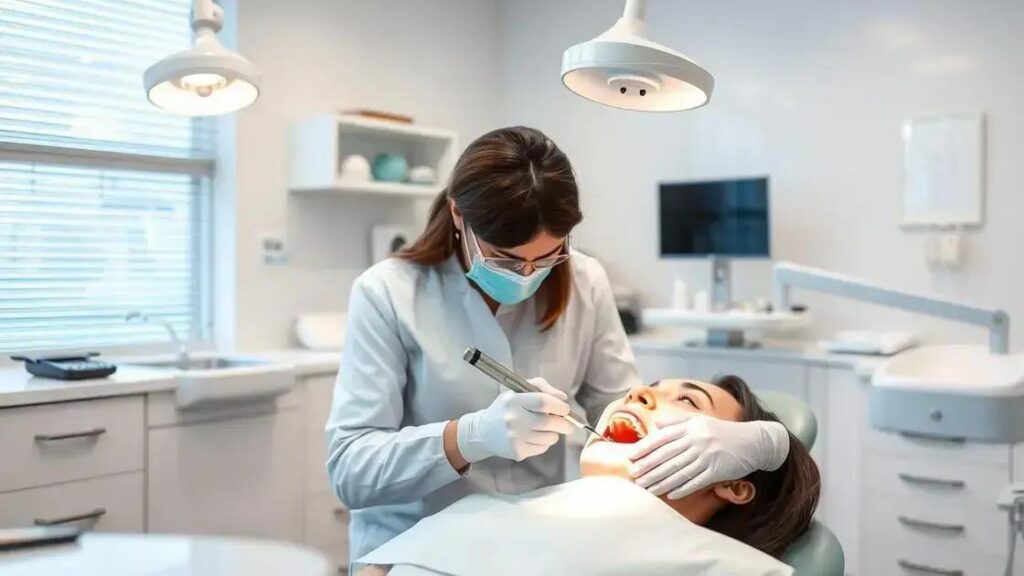Regular dental cleanings are essential for maintaining oral health, preventing gum disease, and avoiding cavities. Typically recommended every six months, these cleanings involve plaque removal, polishing, and fluoride treatments, contributing to overall health and well-being.
Dental cleanings are crucial not just for maintaining a healthy smile, but for your overall health as well. The importance of regular dental cleanings is often overlooked, yet it plays a vital role in preventing serious health issues. In this article, we will discuss what dental cleanings involve, their numerous benefits, how often you should schedule them, and what you can expect during the appointment.
What Are Regular Dental Cleanings?

Regular dental cleanings are essential visits you make to a dentist for preventive care. They help maintain your oral hygiene and are typically scheduled every six months. During these appointments, a dental hygienist uses professional tools to clean your teeth, removing plaque and tartar that regular brushing and flossing might miss.
The process usually begins with a visual examination of your mouth. The hygienist checks for signs of gum disease and decay. Next, they use a scaler to gently scrape away the buildup on your teeth. This buildup can cause issues like cavities and gum disease if not removed.
After the scraping, the hygienist will polish your teeth with a special toothpaste and a rotating brush. This not only makes your teeth shiny but also helps remove any remaining plaque. Finally, a fluoride treatment is often applied to strengthen your enamel.
Overall, these cleanings are a vital part of maintaining your dental health. They can help prevent future problems, saving you time and money in the long run. Skipping these appointments might lead to more serious health issues, including infections and even impacts on your overall health, like heart disease.
Benefits of Regular Dental Cleanings

There are many benefits of regular dental cleanings, making them a crucial aspect of your oral health routine. One major benefit is the prevention of gum disease. During a cleaning, a dental hygienist removes plaque and tartar that can cause inflammation and infection in your gums.
Another benefit is the detection of oral health problems early on. Your dentist can spot issues like cavities, tumors, or early signs of oral cancer during these visits. Catching these problems early means they are usually easier and less expensive to treat.
Regular cleanings also promote fresh breath. Plaque and tartar buildup can contribute to bad breath, so professional cleanings help keep your mouth fresh and odor-free. Additionally, smooth, clean teeth mean you can enjoy better tasting food!
Furthermore, maintaining a regular cleaning schedule is linked to better overall health. Studies suggest that oral health is connected to systemic health issues, including heart disease and diabetes. By keeping your mouth healthy, you may be helping to protect your body in a broader sense.
Finally, routine cleanings can save you money in the long run. Preventive care often costs less than the full treatments needed for advanced dental issues. Regular visits help you avoid more complex procedures like root canals or extractions.
How Often Should You Get Dental Cleanings?

How often should you get dental cleanings? Generally, it is recommended to visit the dentist for a cleaning every six months. This routine helps maintain optimal oral health. However, some individuals may require more frequent visits, depending on their dental condition.
People with gum disease or a history of dental problems might need to schedule cleanings every three to four months. By doing so, they can better manage their oral health and avoid severe complications.
Additionally, those who smoke or have a diet high in sugar and carbohydrates may also benefit from more frequent cleanings. These factors can increase plaque buildup and the risk of cavities, making regular visits essential.
It is important to consult with your dentist about the right schedule for you. They can assess your oral health and recommend a tailored cleaning frequency based on your specific needs.
As a general rule, the key is to stay proactive about your dental care. Regular appointments are important to keep your teeth and gums healthy and to assist in preventing major issues from developing.
What to Expect During a Dental Cleaning

During your visit for a dental cleaning, you can expect a series of steps that focus on keeping your teeth and gums healthy. The process typically starts with a dental hygienist reviewing your medical history. This is important to ensure they understand any health conditions that might affect your dental care.
Next, the hygienist will perform a thorough visual examination of your mouth, checking for any signs of gum disease or cavities. They may use a small mirror and a dental probe for a closer look, focusing on your gums and between your teeth.
After the examination, the hygienist will begin the actual cleaning process. This typically involves scraping away plaque and tartar using specialized tools like scalers. You might hear a scratching noise, but the process is usually painless.
Once the scraping is done, they will use a rotating brush and a special toothpaste to polish your teeth. This step helps to remove any remaining plaque and gives your teeth a nice shine. You may be able to choose a flavor for the toothpaste, making the experience more pleasant.
Finally, a fluoride treatment is applied to help strengthen your enamel. This usually involves a gel or foam placed in a mouthguard, which you wear for a few minutes. Afterward, the hygienist will provide you with tips for maintaining your oral health at home.
Why Regular Dental Cleanings Matter
The importance of regular dental cleanings cannot be overstated. These appointments are essential for maintaining both oral and overall health.
By adhering to a schedule of cleanings, you help prevent gum disease, cavities, and other serious health issues. The benefits, from fresh breath to better health outcomes, underscore the need to prioritize your dental visits.
Remember, your oral health plays a significant role in your overall well-being. So don’t skip those appointments! Embrace the routine of regular dental cleanings for a healthier smile and a healthier you.
FAQ – Questions About the Importance of Regular Dental Cleanings
How often should I get dental cleanings?
It is generally recommended to get dental cleanings every six months, though some may need more frequent visits based on their oral health.
What are the benefits of regular dental cleanings?
Regular dental cleanings help prevent gum disease, cavities, and bad breath, and they can lead to better overall health.
What should I expect during a dental cleaning?
During a dental cleaning, you can expect an examination, plaque and tartar removal, polishing, and a fluoride treatment.
Can skipping dental cleanings affect my overall health?
Yes, skipping dental cleanings can lead to serious dental problems that may also impact your overall health, such as heart disease.
Is getting a dental cleaning painful?
Most people find dental cleanings to be painless, though some may experience minor discomfort during the scraping process if they have sensitive teeth.
Do I need to do anything special before my dental cleaning?
It’s a good idea to brush and floss your teeth before your appointment. Also, inform your dentist of any medical conditions or medications.













